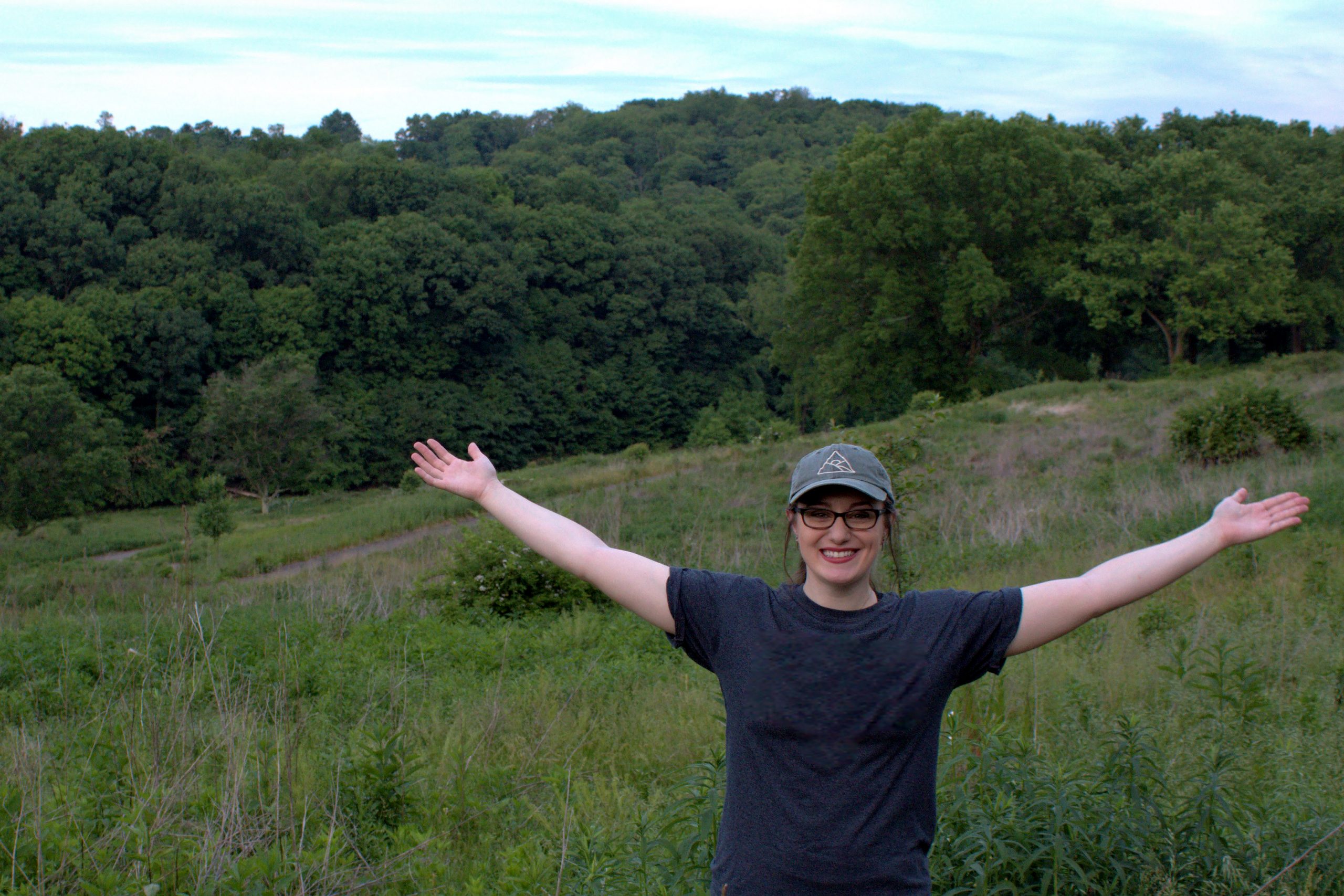PITTSBURGH – Since its closing in January 2013, Churchill Valley Country Club’s formerly impeccably manicured golf course has become overgrown to the point where it’s difficult to visualize anyone playing golf there today.
However, being unable to visualize its past doesn’t mean there isn’t a vision for the future.
Penn Hills resident Emily Golling, a Carlow University graduate student, is leading efforts to turn the 148-acre country club property that sits on the border of Penn Hills and Churchill into the Churchill Valley Greenway, the name for the land formerly used by the country club that will become a greenspace for area residents to enjoy.
Golling, who is in the final semester of her MA in Psychology: Forensic Psychology program worked as the graduate resident director in Student Activities.
“Emily was hired because she has residence life background as well as student activity planning,” said Erin Boyles, assistant dean of students. “I had no idea about her passion until we were conversing over a planned activity. I should have known, though, because when she wants or feels something is needed, her passion is front row. I enjoyed watching her and listening to her planning to save this area.”
For Golling, her involvement began by trying to attract others through social media, and the Allegheny Land Trust (ALT), a land conservation nonprofit with a mission to help local people protect local land for the enjoyment of all, became interested in her efforts.
“Without prompting, Emily has been a critical spark plug creating community awareness about the project through the Facebook page that she has created prior to ALT’s involvement,” said Ray Kraynyk, ALT’s vice president of Land Protection and Capital Projects. “Over the past two years, she’s appeared at municipal public meetings to speak on behalf of the project, wrote letters, visited elected state officials and identified and located the architect or engineer who designed the award winning Core10 Steel bridges. She has also been disciplined to not get out in front of the messaging that ALT was carefully managing, and kept us well informed of any local buzz, positive or negative, circulating about the project.”
Golling said she founded the Facebook page “Churchhill Valley Country Club Land Preservation Effort” to gauge the level of support present in the community, and she now has more than 600 followers of the page.
“The community response to ALT’s efforts to protect this land is in the top three that I’ve experienced in almost 30 years I’ve been doing this,” Kraynyk said. “More than 650 individuals and businesses have made financial contributions to the project. Emily deserves some credit for that.”
Golling said, “I have spent the last three years learning about this specific property’s geographical information and environmental attributes, surveys, maps, floodplains, and watersheds – speaking to property managers, botanists and environmentalists.”
Golling can identify many of the wildflowers that have overtaken the fairways and greens. She knows about Chalfant Run, a stream that flows through the property, and hopes that one day many of the more than 95,000 people who live within a three-mile radius of the property can enjoy the greenspace.
“It is one of the few amenities within walking distance of hundreds of homes,” she said. “There have been many studies done that substantiate the positive impact that proximity to greenspace has on residential property values.”
To accomplish the vision that Golling and others have for the property, ALT is spearheading efforts to raise $3 million by March 2021 to purchase the property from Zokaites Properties, who has owned the land since the country club closed in 2013. To date, more than $2.2 million has been raised, including a recent $1 million grant from Pennsylvania’s Department of Conservation and Natural Resources (DCNR.) Kraynyk said ALT expects to close on the land later this year.
Accordingly to Golling, this is significant for more than the dollar amount.
“It is extremely important that western Pennsylvania taxpayers receive their fair share of these conservation and community building grants for use on projects here to make our communities better,” Golling said. “Over the past three years, 86 percent of the DCNR grant awards have gone to projects in the eastern part of the state — effectively exporting our tax dollars to the east.”
Golling says that Allegheny Land Trust has already taken the lead in building the support necessary to keep those tax dollars in western Pennsylvania, as well as conducting a major fundraising campaign with corporate sponsors to raise the remainder.
There are also environmental advantages in preserving this property as a community green space. A large portion of the 40 acres of the property situated in Penn Hills is a flood plain, and preserving the property as a green space helps Penn Hills meet certain EPA/DEP requirements for storm water runoff.
While the group is still raising money toward its $3 million goal and March 2021 deadline, Golling is optimistic that the outcome will be a positive one.
“ALT is working hard to close the remainder of the financial gap with potential corporate donors,” she said. “I appreciate the continued support of those who see what an asset the space can be for our community.”
